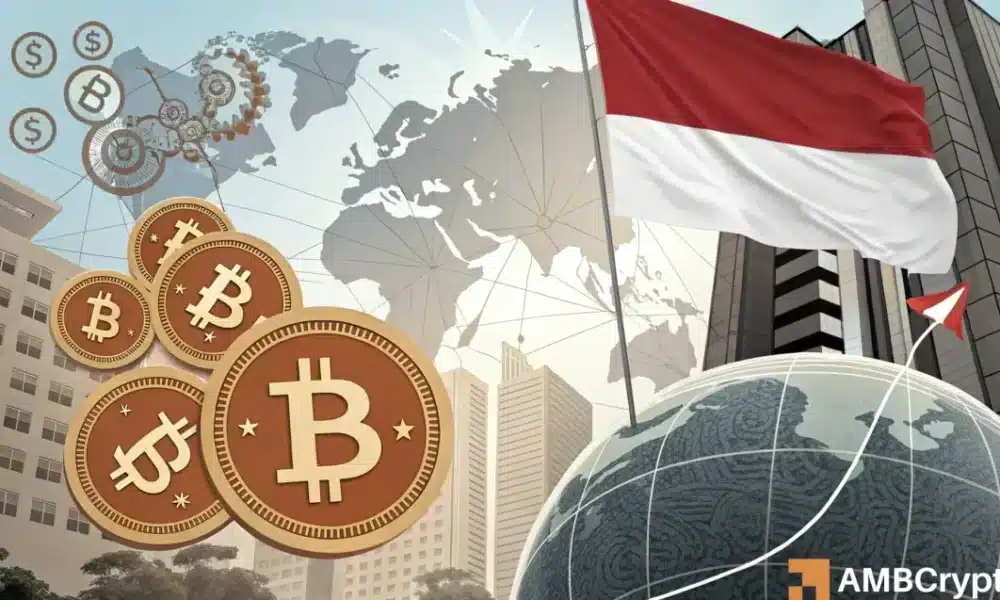Indonesia’s Bold Move Towards Bitcoin Reserves: A New Era in Economic Strategy
A Shift in National Reserves
Indonesia is making headlines as it considers incorporating Bitcoin (BTC) into its national reserves. This initiative, led by the office of the Vice President, reflects a global trend where countries are increasingly looking to digital assets as a hedge against inflation and a way to diversify their financial strategies. By exploring Bitcoin, Indonesia aims to reduce its dependence on traditional fiat currencies like the U.S. dollar and adapt to the changing economic landscape, particularly during turbulent times.
The Growing Interest in Bitcoin
A recent announcement by Bitcoin Indonesia, the country’s largest Bitcoin community, underscored the rising governmental interest in Bitcoin. Officials are keen to understand the potential benefits of this digital asset in bolstering the nation’s economic resilience. Concepts even being entertained include using Bitcoin mining as a national reserve strategy. This could pave the way for Indonesia to leverage Bitcoin’s value to strengthen its economy. Adhit from the Vice President’s office emphasized the importance of education regarding Bitcoin, hinting at a long-term vision for integrating digital currencies into Indonesia’s economic framework.
Indonesia’s Economic Context
With over 280 million residents and a GDP of $1.4 trillion, Indonesia is not only the world’s fourth-most populous nation but also the 16th largest economy. This demographic and economic standing makes Indonesia’s exploration of Bitcoin reserves particularly noteworthy. If the proposal is approved, it may position Indonesia as a pioneer among Southeast Asian nations in adopting Bitcoin into its sovereign wealth strategy. Such a bold move could redefine the country’s financial future as it seeks to navigate the complexities of digital assets in a traditionally conservative economic environment.
Navigating Regulatory Challenges
Despite allowing trading in cryptocurrencies, Indonesia has implemented a strict ban on crypto payments, even warning tourists against using them. This regulatory caution stems from a desire to protect consumers and ensure financial stability. However, the reality on the ground tells a different story. In popular tourist spots like Bali, real estate listings are more frequently accepting Bitcoin, indicating a substantial appetite for cryptocurrency despite regulatory hurdles. The juxtaposition of strict regulations and emerging crypto practices shows the challenge Indonesia faces in balancing innovation while maintaining oversight.
Rising Concerns of Suspicious Activity
Recent reports indicate that Indonesia has experienced an alarming 1,303% increase in suspicious crypto activity quarter-over-quarter, highlighting the necessity for robust regulations. As the country deliberates the potential benefits of a Bitcoin reserve, the focus on establishing clear governance and transparency cannot be overstated. This spike in suspicious behavior places Indonesia in a critical position to address regulatory gaps and protect its financial ecosystem, particularly as it contemplates integrating Bitcoin into its national strategy.
The Future of Bitcoin in Indonesia
As Indonesia continues to explore the feasibility of Bitcoin as part of its national reserves, the implications for its economy and the wider Southeast Asian region remain significant. This exploration represents a shift in the narrative surrounding digital assets, signaling a gradual acceptance of cryptocurrencies in mainstream finance. With educational initiatives underway and the potential for clearer regulations on the horizon, Indonesia may well become a leader in embracing the future of finance through Bitcoin. The journey towards integrating Bitcoin into national reserves could redefine not just Indonesia’s economy but also its position in the global cryptocurrency landscape.


